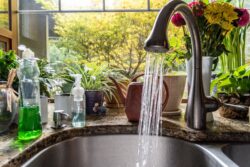Preventing Pollution In and Around Your Home
Read More
Find Your Wastewater Agency
Have a question about wastewater? Locate your home or business on the map and click to find your local wastewater collection system or wastewater treatment agencies info.
If you can’t find your agencies, get in touch with us.
Map is provided for educational purposes only and is not a legal record.

